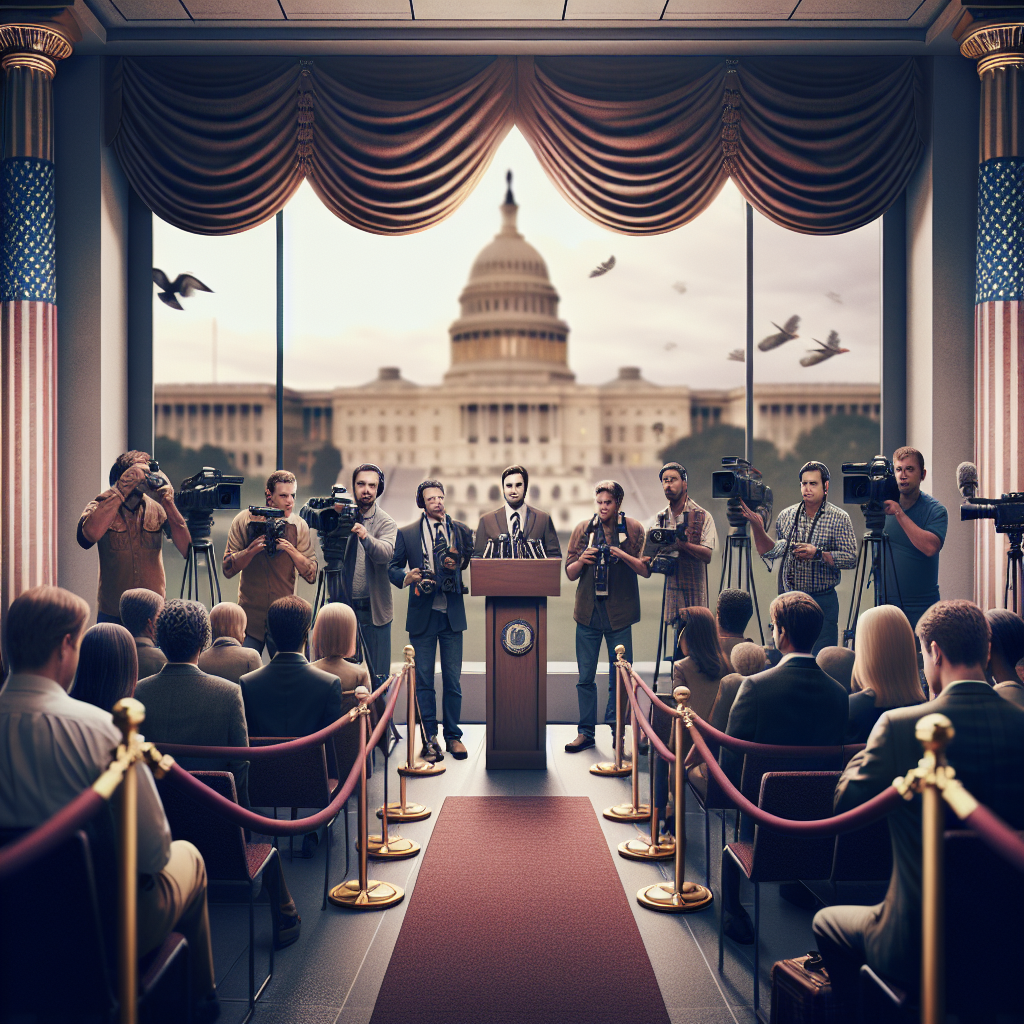
White House to Select News Outlets for Presidential Events Amidst Change in Traditional Practices
The Shift in Media Access Policy
In a move that has sparked intense discussions about media freedom, the White House announced changes in how it allows media coverage of President Donald Trump. The decision, made public on Tuesday, outlines that Trump administration officials will determine which news outlets can closely cover the President. This marks a significant departure from a long-standing tradition where an independent pool of journalists had close access to the Chief Executive for accountability on behalf of the American populace.
White House press secretary Karoline Leavitt emphasized the change as a modernization strategy. By rotating traditional outlets and incorporating streaming services, Leavitt argued that the administration is restoring “access back to the American people.”
The Media Community’s Response
This change was highlighted following the refusal of a federal judge to mandate the immediate restoration of The Associated Press’ (AP) access to certain presidential events. The decision came amidst a legal battle wherein the AP cited the First Amendment, disputing their exclusion for not adopting Trump’s preferred terminology calling the “Gulf of Mexico” as the “Gulf of America.” Despite not suffering irreparable harm according to U.S. District Judge Trevor N. McFadden, the AP’s lawsuit underscores tensions around press restrictions.
Judge McFadden encouraged the Trump administration to rethink its stance, pointing out precedent that may not favor the White House. Trials and decisions regarding this matter are expected to continue through late March, as media outlets argue for journalistic independence.
Implications of AP Style Decisions
The repercussions of the White House’s policy are reflected in the AP’s adherence to editorial standards. The AP Stylebook remains widely regarded for its clarity amongst international and domestic audiences. Its decisions, like retaining the established term “Gulf of Mexico,” underline a broader pushback against perceived attempts to politicize geographic naming. Similarly, the acceptance of Trump’s order to revert the name of Denali to Mount McKinley further displays the administration’s executive reach, given the mountain’s location within U.S. borders.
Exploring the Ongoing Debate on Media Freedom
- WATCH: Senate confirms Iraq War vet Daniel Driscoll as Army Secretary
- Supreme Court Ruling: Affects the strength of civil rights claims
- Federal Tech Workers’ Resignation: In protest against policy directions
A Look at Compliance and Resistance
As tensions escalate over media freedom, journalists and news organizations stand firm on the pivotal role of an independent press. The AP, among others, continues to stress the importance of unbiased reporting, challenging government directives that might compromise their journalistic standards.
Ongoing Coverage and Related Stories
For those interested in continual updates regarding this significant evolution in White House media engagement, focus on key individuals and themes such as:
- Donald Trump News
- Karoline Leavitt
- Media Freedom
- White House Operations
About the Author
This detailed insight into the White House’s media engagement policy is provided by Laurie Kellman of the Associated Press, highlighting critical developments in political communication strategies.
Conclusion: Navigating a New Era of Media Dynamics
The move by the Trump administration to change how news outlets interact with Presidential events is a pivotal point in the media landscape. While framed as an innovation to make coverage more inclusive and representative, it also raises serious concerns about the freedom of the press and its implications. As legal proceedings unfold, the spotlight remains on how these developments will ultimately shape the landscape of political journalism in America.
Stay informed on updates about this topic and others by subscribing to newsletters and watching the proceedings closely. The outcome will not only influence current media practices but will set a precedent for how government entities can interact with the press in future administrations.
Sources: https://www.pbs.org/newshour/politics/watch-live-white-house-says-trump-administration-will-choose-which-news-organizations-get-access

